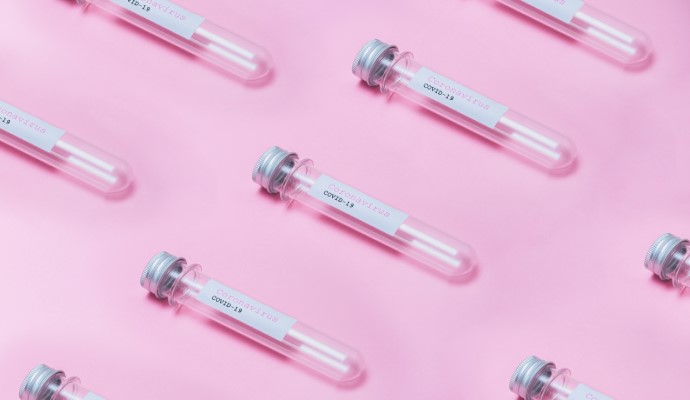COVID-19 Tests Spike Growth in Medicare Spending
Medicare Part B spending on clinical diagnostic laboratory (lab) tests increased by 4.2 percent, impacted by new spending on COVID-19 tests.

Source: Getty Images
- COVID-19 tests spiked growth in Medicare spending in 2020. Meanwhile, spending for non-COVID-19 lab tests experienced a decline, according to a report from the HHS Office of the Inspector General (OIG).
The report showed that overall Medicare Part B spending testing increased from $7.7 billion in 2019 to $8.0 billion in 2020, reflecting a 4.2 percent increase.
The increase in Medicare Part B spending was mainly driven by $1.5 billion in new spending on 25 unique procedure codes related to COVID-19 testing, with rapid COVID-19 tests alone contributing to $1.0 billion. Other sets of tests included:
- Antibody tests
- High-throughput tests with shorter test turnaround times
- Panel tests that tested for COVID-19
- Other respiratory diseases
The report revealed that over 8.4 million Medicare Part B beneficiaries received a minimum of one COVID-19 test funded under the Clinical Laboratory Fee Schedule (CLFS) in 2020.
Additionally, an average of two COVID tests per individual beneficiary was paid for by Medicare Part B.
Medicare Part B payment rates for COVID-19 tests ranged from $18.09 per test to $100 per high-throughput test.
COVID-19 tests contributed to nearly 19 percent of total Medicare Part B spending on lab tests thar year.
As spending for COVID-19 test grows, spending for all non-COVID-19 lab tests decreased $1.2 billion in 2020, a 15.9 percent drop from 2019.
Since 2016, there has been no decrease in total lab spending. Specifically, the average annual increase in payments has been nearly 4.3 percent per year.
However, over this five-year period, non-COVID-19 spending in 2020 was at its lowest yet.
“The decline in spending was driven by a decline in overall healthcare utilization during the pandemic, as well as a further reduction in payment rates for some tests, as required by the
Protecting Access to Medicare Act of 2014 (PAMA),” the OIG stated.
In addition, the decrease in Medicare Part B utilization of non-COVID-19 testing was the result of a sharp drop in testing in the spring of 2020. In April 2020, the number of non-COVID-19 tests administered was 53 percent lower when compared to rates in April 2019.
The decline in test volume coincides with CMS guidance released on April 7, 2020, recommending healthcare facilities prioritize services for urgent situations and delay non-emergent care and preventative screening procedures to limit the spread of COVID-19.
Yet, OIG concluded that Medicare beneficiaries did not make up for missed care for the second half of 2020 as the monthly volume of non-COVID-19 testing did not spike back up.
Medicare Part B spending on the top 25 tests increased by 8 percent in 2020 with nearly $5 billion spent, 62 percent of total spending in 2020.
Compared to 2019, spending decreased for 20 of the 21 non-COVID-19 tests in the top 25.
“This set of tests includes routine screening tests that allow providers to identify potential issues in patients who would benefit from early intervention but may not have symptoms that require an urgent diagnosis,” OIG stated.
The findings show that the only non-COVID-19 test to increase in both volume and spending was a microbiology test that uses nucleic acid to detect an infectious agent. However, the report suggested that this non-COVID-19 test was likely used with COVID-19 testing.
“The decline in volume for non-COVID-19 tests raises questions about the potential impacts on beneficiary health,” the report concluded.
“The decline in testing coincided with the height of COVID-19-related economic shutdowns, which affected many parts of the healthcare sector. If Medicare beneficiaries delayed or avoided preventative healthcare services, they may not have received important tests, such as cancer screenings, that are medically necessary but not urgent. Research suggests that delays of such lab tests could have a long-lasting impact on the health of some Medicare Part B beneficiaries.”
